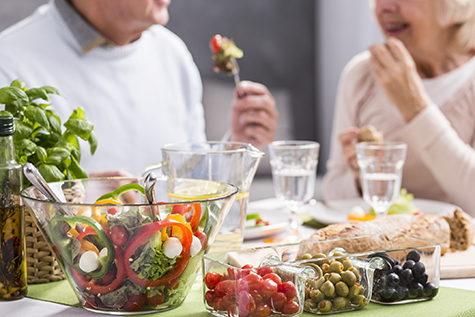Tips to Keep Eating Healthy at 50 And Beyond

A balanced diet is an integral element of a healthy lifestyle for men, women and children alike.
According to the National Institute on Aging, simply counting calories without regard for the foods being consumed is not enough for men and women 50 and older to maintain their long-term health. Rather, the NIA emphasizes the importance of choosing low-calorie foods that have a lot of the nutrients the body needs.
But counting calories can be an effective and simple way to maintain a healthy weight, provided those calories are coming from nutrient-rich foods.
When choosing foods to eat, the NIA recommends eating many different colors and types of vegetables and fruits.
The Produce for Better Health Foundation notes that a varied, colorful diet incorporates lots of different types of phytochemicals, which the PBH says have disease-preventing properties.
The NIA also advises that men and women over 50 make sure at least half the grains in their diets are whole grains. Numerous studies have discovered the various benefits of whole grains, which are loaded with protein, fiber, antioxidants and other nutrients. Whole grains have been shown to reduce the risk for diseases such as type 2 diabetes, heart disease and some types of cancer.
Another potential hurdle men and women over 50 may encounter is a change in their sense of smell and taste. A person’s sense of smell may fade with age, and because smell and taste are so closely related, foods enjoyed for years may no longer tantalize the taste buds.
That can be problematic, as many people instinctually add more salt to foods they find bland.
According to the U.S. Office of Disease Prevention and Health Promotion, older adults should consume no more than 1,500 milligrams of sodium per day. That equates to roughly 3/4 teaspoon of salt.
